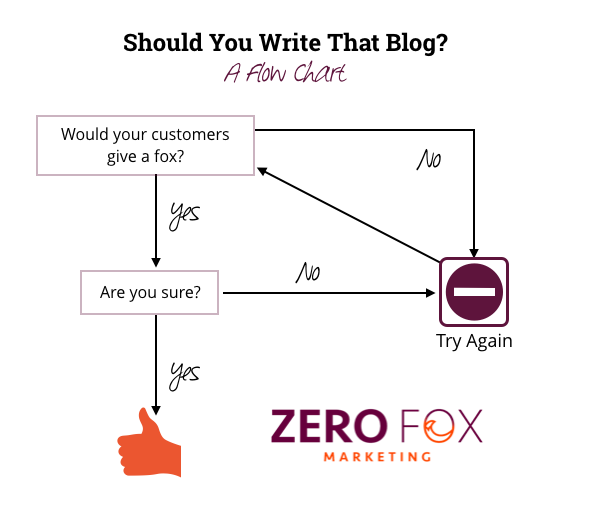One thing I love about business owners is how much they care about their customers. When I’m working with my clients, I get to witness their passion and dedication firsthand. It’s one of the best parts of my job.
But when I first meet a business owner looking for marketing help, one thing sticks out like a sore thumb. Many have been tricked into thinking that marketing (especially search engine marketing) is about everything *but* their customers.
It makes no sense!
They come to me saying things like:
- “I need to make my website search engine friendly.”
- “My website is not optimized.”
- “My site doesn’t rank.”
They haven’t really uncovered data to corroborate their assumptions, or determine what spending money on these things will actually do. And they haven’t considered their customers’ role in this marketing strategy.
Don’t get me wrong. SEO is a thing. It’s a thing that you most definitely need for your business to thrive in today’s world.
But if you start with the technology or the tactic (i.e. SEO) and forget about why you’re doing it in the first place (i.e. your customer), you’ll end up in a hole.
Real Life Example: Evaluating SEO Proposals
A prospective client called me a while back. Business was slow, and they thought it was because of a lack of SEO. They had gotten proposals to review and fix meta data and coding issues, work on page speed, do some reporting, and more.
But not one of those proposals mentioned content. You know, content? That stuff that humans see and use while deciding whether to do business with you?
This part of SEO has always struck me as funny. Google is a giant company. A giant company with a workforce of people solely dedicated to the task of making their algorithms and tools act more like humans and less like computers. And while Google is spending tons of time and money to make their bots more like humans, some business owners are still spending tons of money on shoddy SEO services that put bots first. It’s counter-intuitive.
 Does your website need to follow technical best practices? Yes. Are things like page speed factors that are worthy of consideration? Yes. But if the information on your site is bad and you haven’t updated it since 2016, you’ve got bigger fish to fry.
Does your website need to follow technical best practices? Yes. Are things like page speed factors that are worthy of consideration? Yes. But if the information on your site is bad and you haven’t updated it since 2016, you’ve got bigger fish to fry.
I think a lot of business owners get pushed into buying ineffective SEO services because their salespeople are good at using scare tactics, and also have product-ized services that seem like they’ll solve the issue. For example, they talk a big game about algorithm changes and website errors and more, with convenient packages that promise to solve your problems.
If you don’t understand online marketing, Google can feel like a big black hole that’s hard to understand. Acronyms and technical terms make things sound worse than they actually are, and the threat of losing favor with a search engine that the majority of the population uses is palpable. Putting some money towards it sounds like a sensible thing to do.
But if you spend money on SEO services that focus on the wrong things, you’re stealing money and resources away from 1) your wallet, and 2) marketing strategies that could actually work to bring you more business.
Before you spend money on search engine marketing, ask yourself these three questions:
1. Does the proposal include anything that I’ve personally used to make a buying decision in the past?
If someone is trying to sell you something that you’ve never heard of before, and that you’ve never used to make a personal or business buying decision in the past, you need to be careful. It doesn’t mean that it’s untruthful or unnecessary, but if your budget and your resources are limited, you’ll probably need to weigh it against other priorities.
If you allow an advanced technical technique that can only move the needle a little bit to take precedence over a basic fix that could quickly produce more conversions and revenue, you will miss out.
2. Does the proposal use any words or terms that I don’t understand? And if so, is the person giving me the proposal making an effort to help me understand it in a tangible way?
You cannot know everything as a business owner. You will need to rely on people with different expertise than you to help your business grow, including marketing.
But if you’re evaluating a proposal for a service that you don’t know much about, and the salesperson isn’t making much of an effort to educate you on why it matters for your business in particular, one of two things will likely happen: 1) you’ll waste money on something that doesn’t work, or 2) you’ll never have a way to know with certainty whether it’s working or not.
3. Have I done any independent fact-checking?
If you don’t understand something, or you can’t figure out whether it matters for your business, Google it to see what others have written about it. Ask a colleague if they know anything about it, or if they might know someone who does. A little independent detective work can help you gain perspective and understanding, so that you are more comfortable and confident in any decision you make about marketing spend.
If any of this information struck a chord with you, I’d love to chat. I can help you navigate these processes (including SEO) impartially, and in a way that you can understand.



About The Author: Christina Ousouljoglou
I'm a results-focused, data driven go-getter. I help clients turn marketing headaches into understandable business strategies that work.
More posts by Christina Ousouljoglou